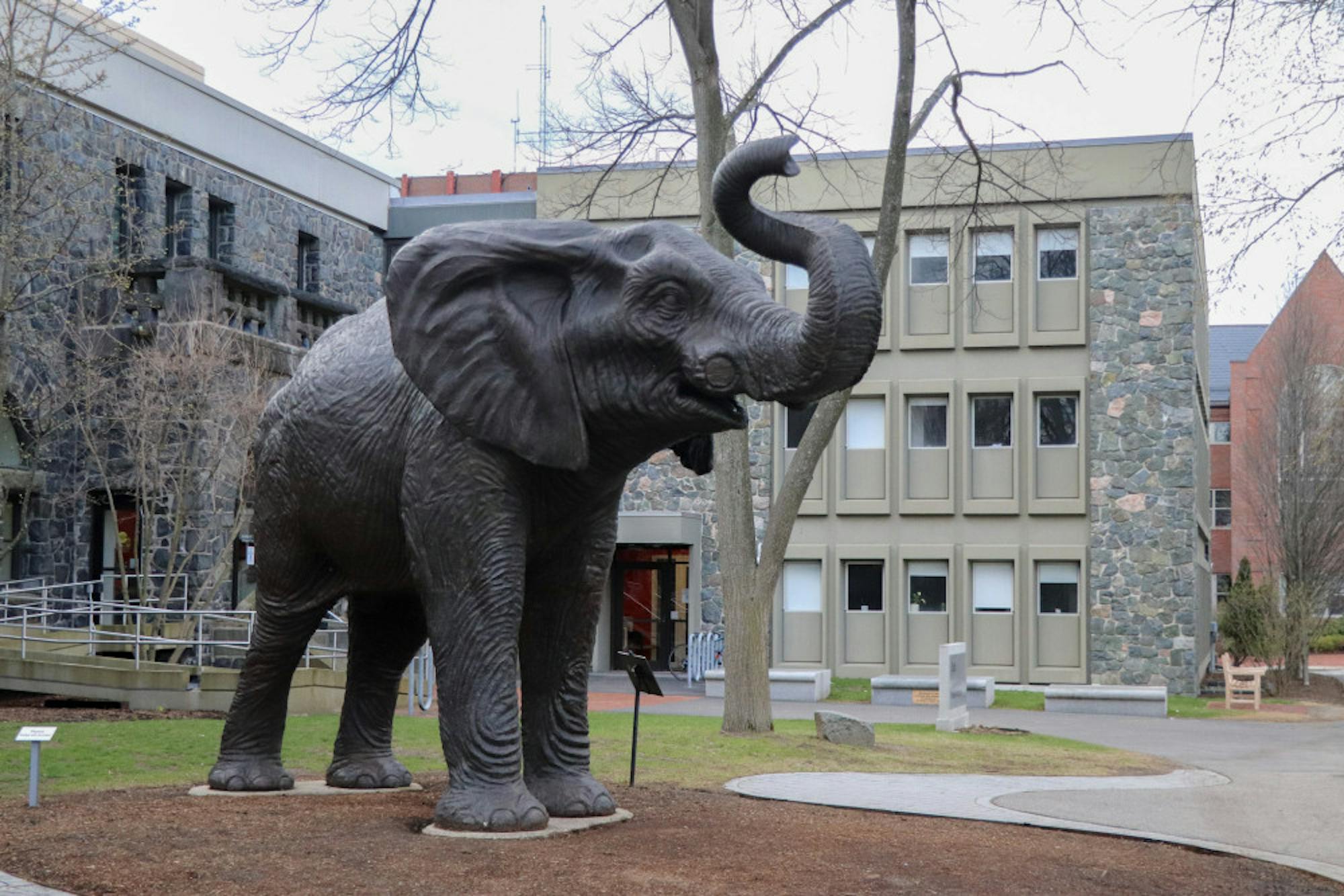Jana Dia has never been to the United States before, but she knows she wants one of her first stops to be Medford, Mass.
This rising first-year hails from a city in eastern Paraguay that borders Argentina and Brazil. She knows four languages — she hopes to learn a fifth at Tufts — and come September, she’ll be one of just two students from her graduating class attending college in the U.S.
“When I was researching Tufts, of course I wanted to look into the clubs and organizations that make you feel at home and that give me a sense of belonging,” Dia said. “And since I’m someone from a multicultural background, I found all the clubs and all the organizations that do make me feel like I’ve landed at home at Tufts.”
Dia, who applied through the federal program EducationUSA, is one of less than 3,200 students who were offered admission to the Class of 2026 out of more than 34,880 applicants. Applications this year increased by 12%, and the acceptance rate dropped to a record-low 9%.
“The students we have admitted this year are very impressive — both for their accomplishments, and for their aspirations,” Dean of Admissions JT Duck wrote in an email to the Daily. “This is a very civically engaged class. Through their community engagements and activities, and through the essays that they wrote, our admitted students showed a strong interest in bringing their voices and energy into conversations about how institutions and societies govern themselves.”
Civic engagement is one of Tufts’ core values, one that’s embodied by the Jonathan M. Tisch College of Civic Life. And it’s a message that resonated with at least one rising first-year.
Luca O’Neil, of Weston, Conn., said he was drawn to Tufts after a pair of students approached his tour group last summer seeking signatures in support of Tufts Dining workers. At the time, activists were rallying for workers to continue receiving pay from the university after many were not offered work at Tufts over the summer.
“Nowhere else is the student body so engaged,” O’Neil said in an interview.
The Connecticut native said he plans to study chemistry and join student activist groups. An enthusiast of the “Pitch Perfect” (2012) group The Barden Bellas, O’Neil said he’s also looking forward to attending a cappella concerts on campus.
When asked if he plans on joining one of the groups, O’Neil responded, “No, oh God, no. I’m not a good singer.”
O’Neil is part of the class of students entering college this fall that mostly began touring and applying to colleges well after the pandemic was underway. Piled on top of the anxiety that college admissions is known to produce, in-person tours — muted by the pandemic — didn’t always provide what O’Neil envisioned to be an authentic glimpse into what life in college was really like.
O’Neil said he felt a disconnect between himself and the students he saw on some of the campuses he toured, in part because of mask mandates and the way that the pandemic was affecting campus life.
“On tours,” he said, “It was so ever-present that [COVID-19] was there, and the people were not the same.”
Nonetheless, O’Neil was able to come to campus for a tour, and since his admission, he has spent time connecting with his future classmates on Instagram.
One incoming student spent a greater percentage than many of his peers on Zoom for his secondary school years. Julian Kelly is a high school junior from an island located three miles off the coast of Maine, where the population is just under 600 and where the only access point to the coastal United States is via ferry.
Kelly will graduate in June and begin studying at Tufts in the fall — a year earlier than he expected. He’ll be one of 13 students to graduate this year from his K–12 school, which has less than 40 students in grades 9–12, according to Kelly.
Duck explained that as applications have swelled, the admissions office has relied increasingly on its “committee-based evaluation process of reviewing applications.”
“This reading process relies on small committees of application readers discussing each application and deciding together whether that application continues moving forward in our iterative process,” Duck wrote. “This process leans into committee dialogue, and our belief is that multiple readers working together make better decisions than one reader alone.”
The university offered fewer students admission this year than in recent years, after enrollment for the Class of 2025 exceeded expectations and left about 100 first-years housed in a Hyatt hotel off campus.
As the university continues to expand the size of the undergraduate student body, officials announced last week their plans to install temporary residence halls on the Vouté Tennis Courts, where modular units have housed COVID-19-positive students over the past two academic years. Approximately 150 first-years will live in the new housing units next fall, which will continue to house students for the next five years, Dean of Student Affairs Camille Lizarríbar confirmed in a campus-wide email.
But most of all, O’Neil said he is excited for “something new, being somewhere that I can be myself and meet new people and have new experiences.”






